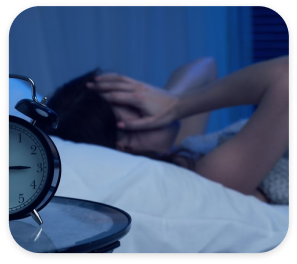
The COVID-19 pandemic has created significant psychological challenges globally. Evidence has been mounting of greater emotional distress and possible worsening of underlying psychiatric disorders, due to repercussions of COVID-19. In addition, the pandemic has created barriers to access for help, due to social distancing and travel restrictions.
Thus, creating a major need for effective interventions that can be accessed safely from home and provide coping tools which can be learned and practiced while in isolation. An App based Yoga of Immortals (YOI) program is one such strategy to help cope with stressful situations…

Depression, anxiety, and disordered sleep are some common symptoms associated with sub-optimal mental health. During the COVID-19 pandemic, mental health issues have grown increasingly more prevalent in the population.
Due to social distancing and other limitations during the pandemic, there is a need for home-based, flexible interventions that can improve mental health. The Yoga of Immortals (YOI) mobile application provides a structured intervention that can be used on any mobile device and applied from the user’s home…

The coronavirus disease 2019 (COVID-19) pandemic created significant psychological challenges worldwide, including stress, emotional distress, and insomnia. In addition, social distancing, travel restrictions, and spread of disease have resulted in unique challenges, creating barriers to healthcare access.
Compared to the rate prior to the COVID-19 pandemic, a significant increase in clinical insomnia rates have been reported. With well-known limitations of currently established treatments (e.g., cognitive behavioral therapy-insomnia (CBT-I), pharmacotherapy), there is a need to explore other effective and safe treatment modalities to treat insomnia, especially those that can be used remotely…

Copyright © 2022 SYC Infinite